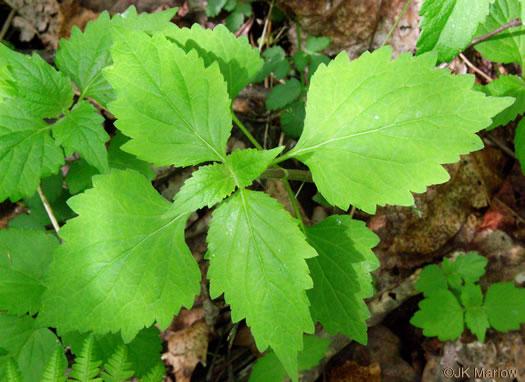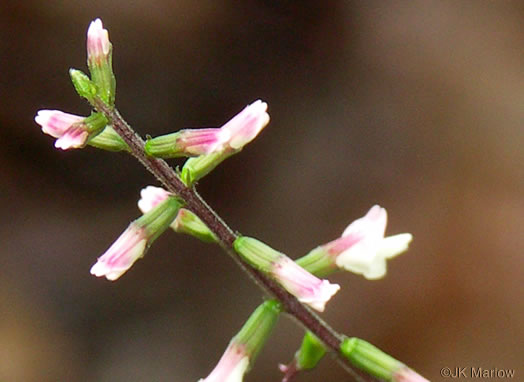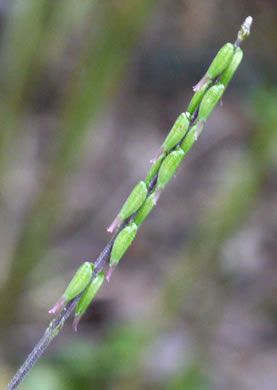Hovering over an image will enlarge it and point out features (works better on desktop than on mobile).
![]() A camera indicates there are pictures.
A camera indicates there are pictures.
![]() A speaker indicates that a botanical name is pronounced.
A speaker indicates that a botanical name is pronounced.
![]() A plus sign after a Latin name indicates that the species is further divided into varieties or subspecies.
A plus sign after a Latin name indicates that the species is further divided into varieties or subspecies.
Most habitat and range descriptions were obtained from Weakley's Flora.
Your search found 2 taxa in the family Phrymaceae, Lopseed family, as understood by Vascular Flora of the Carolinas.

![]()
![]() Common Name:
American Lopseed
Common Name:
American Lopseed
Weakley's Flora: (4/24/22) Phryma leptostachya FAMILY: Phrymaceae
INCLUDED WITHIN PLANTS National Database: Phryma leptostachya FAMILY: Verbenaceae
INCLUDED WITHIN Vascular Flora of the Carolinas (Radford, Ahles, & Bell, 1968): Phryma leptostachya 163-01-001 FAMILY: Phrymaceae
Habitat: Bottomland forests, nutrient-rich slopes, mesic hammocks, in the Coastal Plain primarily in places underlain by coquina limestone (‘marl’) and essentially absent from the more acidic portions of the Coastal Plain
Common (uncommon in Carolina Coastal Plain) (rare in GA Coastal Plain)
Native to the Carolinas & Georgia

Common Name: Mudmat
Weakley's Flora: (4/24/22) Glossostigma cleistanthum FAMILY: Phrymaceae
(?) PLANTS National Database: Glossostigma cleistanthum FAMILY: Scrophulariaceae
Habitat: Aquatic in oligotrophic lakes, reservoirs, and stormwater retention ponds
Non-native: Australia
Your search found 2 taxa. You are on page PAGE 1 out of 1 pages.




